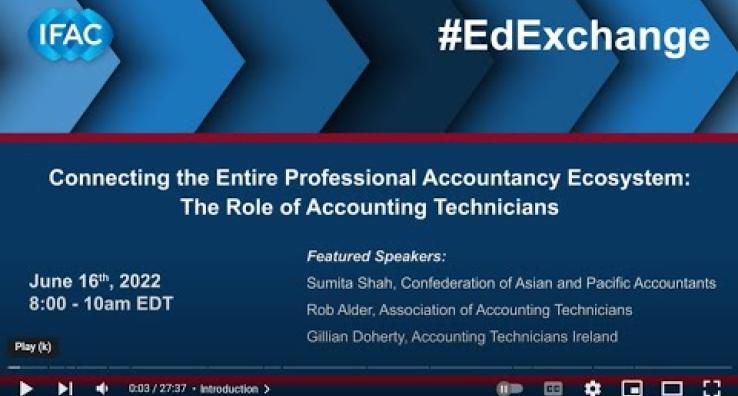Accounting Technicians are part of the global accountancy profession, working across all sectors in financial management roles that are essential to a strong and sustainable accountancy profession, private and public sector organizations, and financial markets and economies. When Accounting Technicians, or ATs, are empowered with appropriate technical knowledge and practical skills—and valued by employers—they support the production of reliable financial and non-financial information that drives timely and informed decision making, and delivers transparency and accountability.
-
Roles Played by Accounting Technicians
- Using manual or computerized systems to process invoices, receipts and payments
- Completing and submitting tax returns
- Managing payroll and expenses
- Collecting and processing non-financial information
- Producing monthly accounts
- Planning and controlling budgets
- Supporting anti-money laundering efforts
More experienced Accounting Technicians may also provide advice on budgeting, tax compliance, audits, business growth, and internal controls.
The Accounting Technician Designation
PAOs considering introducing an Accounting Technician designation should do so as both a credible qualifying endpoint—leading to a fulfilling and meaningful career—and as an effective pathway toward other accountancy designations for those who want to continue their professional development journey.At a minimum, an AT designation should require successfully completing a rigorous education program that develops and assesses competence in financial and non-financial systems and processes, data management and preparing information for decision making. AT programs should also consider covering digital skills, ethics, sustainability, and professional skills, such as communication.Once awarded the AT designation, PAOs should ensure that their AT members commit to ethical standards and continuous professional development.
Publications & Gateway Articles
Videos

The Value of Accounting Technician Qualifications in Developing Professions

CAPA's work considering ATs within the overall profession

Gillian Doherty from AT Ireland on the role of ATs

Rob Alder from AAT on AT's value

Accounting Technicians: Opportunities and Challenges Panel Discussion
Case Studies
Resources from Our Network
-
Member organizations offering Accounting Technician qualifications (or similar)
This list includes IFAC members and associates that offer AT or similar qualifications. The actual level and requirements of these qualifications vary.
- Accounting Technicians Ireland
- Association of Accounting Technicians (United Kingdom)
- Association of Accounting Technicians of Sri Lanka
- Association of Chartered Certified Accountants (ACCA)
- Accountants Association in Poland
- Botswana Institute of Chartered Accountants
- Chartered Accountants Australia and New Zealand
- Colegio de Peritos Mercantiles y Contadores Públicos (Honduras)
- Conselho Federal de Contabilidade (Brazil)
- Institute of Accountants and Auditors of Montenegro
- Institute of Certified Public Accountants of Rwanda
- Institute of Chartered Accountants in England and Wales
- Institute of Chartered Accountants of Nigeria
- Institute of Public Accountants (Australia)
- Kampuchea Institute of Certified Public Accountants and Auditors (Cambodia)
- Korean Institute of Certified Public Accountants
- Society of Certified Accountants and Auditors of Kosovo
- South African Institute of Chartered Accountants
- South African Institute of Professional Accountants
- Union of Accountants, Auditors and Financial Workers of Federation of Bosnia and Herzegovina





